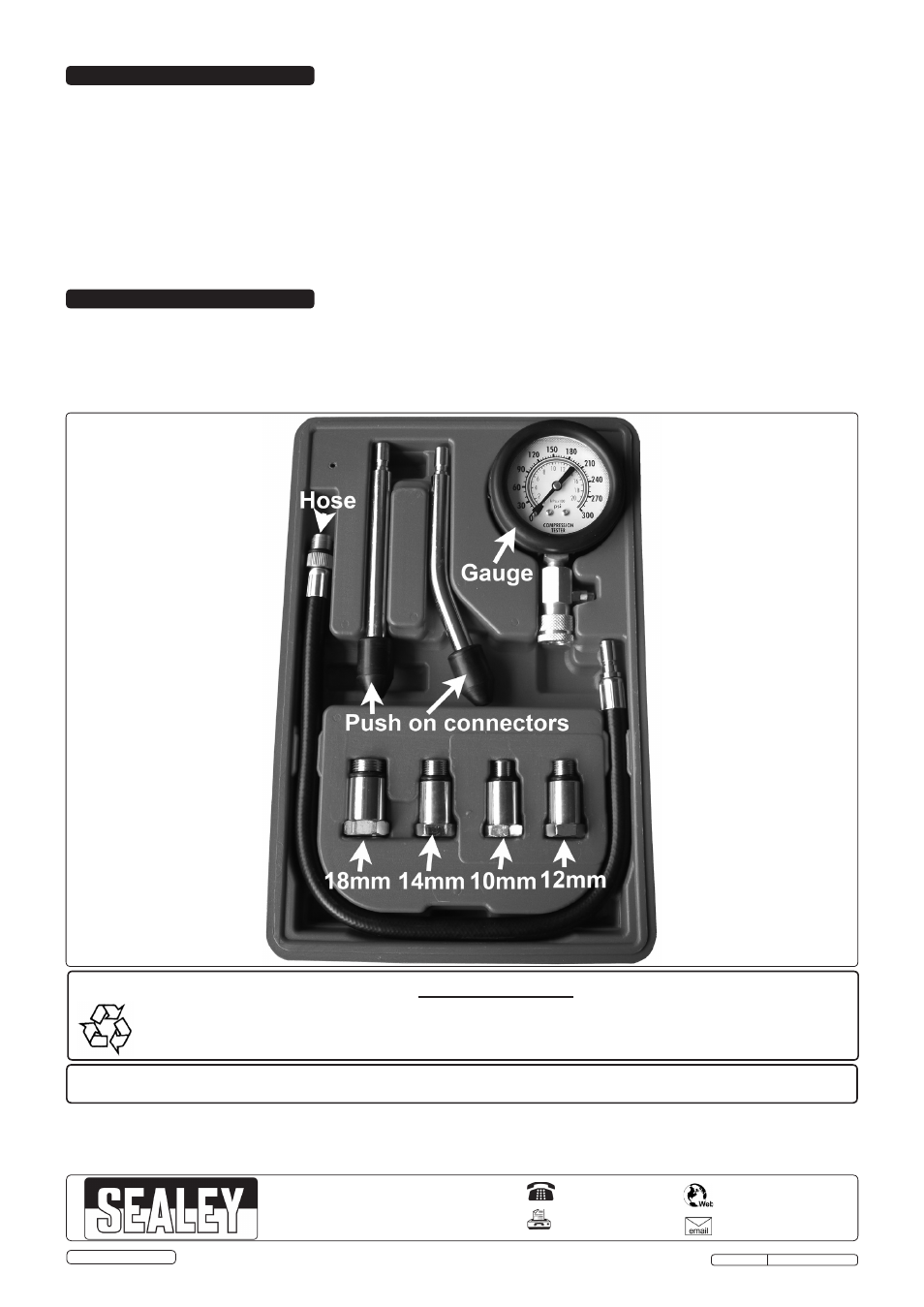Test results 5. completion of tests – Sealey CT955 User Manual
Page 2

CT955.V3 Issue: 1 - 18/09/14
NOTE: It is our policy to continually improve products and as such we reserve the right to alter data, specifications and component parts without prior notice.
IMPORTANT: No liability is accepted for incorrect use of this product.
WARRANTY: Guarantee is 12 months from purchase date, proof of which will be required for any claim.
INFORMATION: For a copy of our latest catalogue and promotions call us on 01284 757525 and leave your full name and address, including postcode.
01284 757500
01284 703534
Sole UK Distributor, Sealey Group,
Kempson Way, Suffolk Business Park
,
Bury St. Edmunds, Suffolk,
IP32 7AR
www.sealey.co.uk
Original Language Version
© Jack Sealey Limited
Parts support is available for this product. To obtain a parts listing and/or diagram,
please log on to www.sealey.co.uk, email [email protected] or telephone 01284 757500.
Environmental Protection
Recycle unwanted materials instead of disposing of them as waste. All tools, accessories and packaging should be
sorted, taken to a recycling centre and disposed of in a manner which is compatible with the environment.
When the product becomes completely unserviceable and requires disposal, drain off any fluids (if applicable)
into approved containers and dispose of the product and the fluids according to local regulations.
4. TEST RESULTS
5. COMPLETION OF TESTS
4.1. Gauge Readings
4.2. On a normal cylinder, the gauge needle should travel up the scale on each compression stroke until it reaches peak value. All cylinders
should indicate a pressure that is within the vehicle manufacturer’s specifications, and the reading should not vary by more than 10%
from cylinder to cylinder.
4.3. If the gauge needle does not travel up the scale or if it remains at the same value for several strokes and then starts to climb, the
problem could be a valve sticking.
4.4. If the compression reading is considerably higher than the vehicle manufacturer’s specification, the problem may be carbon build-up in
the cylinder. It may also indicate that either the piston, or the cylinder head, has been modified.
4.5. If a reading on two adjacent cylinders is 20psi (or more) lower than the other cylinders, the problem may be a cracked cylinder head or
defective main gasket. Under these conditions, both coolant and oil may be found in both cylinders.
4.6. If the readings are low, or vary widely between cylinders, pour a teaspoon of SAE 30 oil into each cylinder and retest them. If the
readings increase considerably, the problem may be poorly seated, or worn, piston rings. If the readings remain about the same, the
valves and/or associated components may be the problem. A burnt or damaged piston may also cause the same results.
5.1. Clean, re-gap and reinstall the spark plugs in the same order in which they were removed, or install new spark plugs.
5.2. Reconnect each spark plug lead to the plug it was connected to prior to removal.
5.3. Return the throttle plates to the closed position.
IMPORTANT: After test, failure to return the throttle plates to the closed position before starting the engine can cause serious
damage to the engine.
5.4. Reconnect the ignition system wiring disconnected in paragraph 3.8.